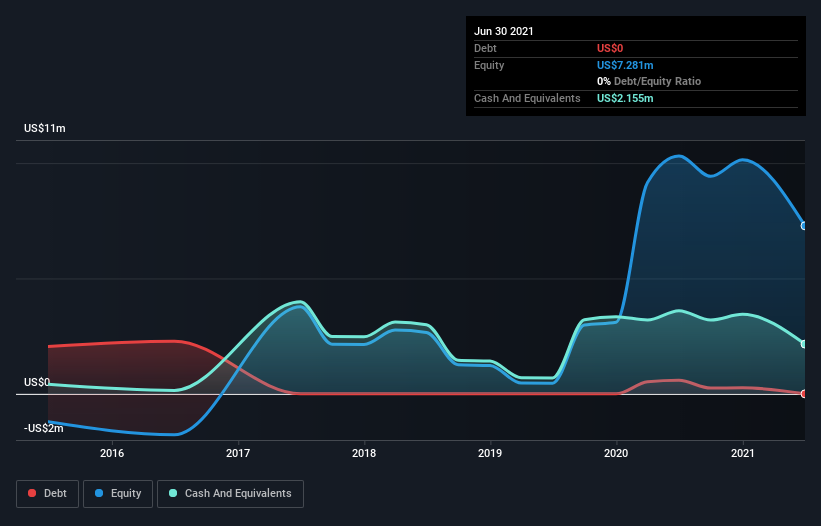Here's Why We're Not Too Worried About Tinybeans Group's (ASX:TNY) Cash Burn Situation
Even when a business is losing money, it's possible for shareholders to make money if they buy a good business at the right price. For example, biotech and mining exploration companies often lose money for years before finding success with a new treatment or mineral discovery. Nonetheless, only a fool would ignore the risk that a loss making company burns through its cash too quickly.
Given this risk, we thought we'd take a look at whether Tinybeans Group (ASX:TNY) shareholders should be worried about its cash burn. For the purposes of this article, cash burn is the annual rate at which an unprofitable company spends cash to fund its growth; its negative free cash flow. First, we'll determine its cash runway by comparing its cash burn with its cash reserves.
View our latest analysis for Tinybeans Group
Does Tinybeans Group Have A Long Cash Runway?
A company's cash runway is the amount of time it would take to burn through its cash reserves at its current cash burn rate. When Tinybeans Group last reported its balance sheet in June 2021, it had zero debt and cash worth US$2.2m. In the last year, its cash burn was US$1.6m. That means it had a cash runway of around 16 months as of June 2021. That's not too bad, but it's fair to say the end of the cash runway is in sight, unless cash burn reduces drastically. The image below shows how its cash balance has been changing over the last few years.
How Well Is Tinybeans Group Growing?
We reckon the fact that Tinybeans Group managed to shrink its cash burn by 21% over the last year is rather encouraging. Having said that, the revenue growth of 95% was considerably more inspiring. We think it is growing rather well, upon reflection. Of course, we've only taken a quick look at the stock's growth metrics, here. This graph of historic revenue growth shows how Tinybeans Group is building its business over time.
How Easily Can Tinybeans Group Raise Cash?
Tinybeans Group seems to be in a fairly good position, in terms of cash burn, but we still think it's worthwhile considering how easily it could raise more money if it wanted to. Generally speaking, a listed business can raise new cash through issuing shares or taking on debt. Many companies end up issuing new shares to fund future growth. By comparing a company's annual cash burn to its total market capitalisation, we can estimate roughly how many shares it would have to issue in order to run the company for another year (at the same burn rate).
Tinybeans Group has a market capitalisation of US$39m and burnt through US$1.6m last year, which is 4.2% of the company's market value. That's a low proportion, so we figure the company would be able to raise more cash to fund growth, with a little dilution, or even to simply borrow some money.
How Risky Is Tinybeans Group's Cash Burn Situation?
As you can probably tell by now, we're not too worried about Tinybeans Group's cash burn. For example, we think its revenue growth suggests that the company is on a good path. On this analysis its cash runway was its weakest feature, but we are not concerned about it. Based on the factors mentioned in this article, we think its cash burn situation warrants some attention from shareholders, but we don't think they should be worried. On another note, Tinybeans Group has 3 warning signs (and 1 which can't be ignored) we think you should know about.
Of course, you might find a fantastic investment by looking elsewhere. So take a peek at this free list of interesting companies, and this list of stocks growth stocks (according to analyst forecasts)
This article by Simply Wall St is general in nature. We provide commentary based on historical data and analyst forecasts only using an unbiased methodology and our articles are not intended to be financial advice. It does not constitute a recommendation to buy or sell any stock, and does not take account of your objectives, or your financial situation. We aim to bring you long-term focused analysis driven by fundamental data. Note that our analysis may not factor in the latest price-sensitive company announcements or qualitative material. Simply Wall St has no position in any stocks mentioned.
Have feedback on this article? Concerned about the content? Get in touch with us directly. Alternatively, email editorial-team (at) simplywallst.com.

